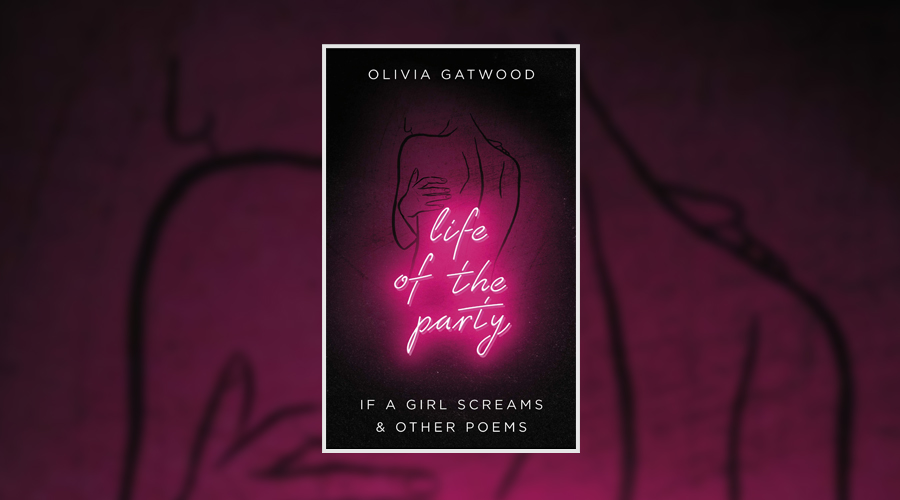Book Review: Life Of The Party – If A Girl Screams, And Other Poems by Olivia Gatwood

I don’t read poetry. That’s not a principle, or even intentional. It’s just that when I’m in the library or a bookshop, I never even consider checking the poetry section. It doesn’t cross my mind. I’m not sure which poets to look out for, or even how to read poetry books – one poem at a time, all in one sitting? Although I read voraciously, I’m a poetry novice.
And yet somehow, when I came across Olivia Gatwood’s Life Of The Party: If A Girl Screams, And Other Poems, I couldn’t resist.
The book begins with an author’s note from Gatwood, explaining how the collection was borne out of a week of insomnia where she was terrified a man would enter her apartment through the first-floor window. She’d developed an addiction to true crime stories, and couldn’t stop thinking about the dead girls who were inevitably at the centre of them. She states, however, it wasn’t all the true crime that made her scared, but the very fact of being a woman in a world with so many predatory men.
Life Of The Party is a reaction to, and a guttural cry against, the fear that shapes so many women’s lives. Many of these poems – ‘Mans/Laughter’, ‘My Girl’, ‘A Story Ending In Breakfast’, ‘Mango Season’, ‘Body Count: 13’ – detail the violence that men have perpetrated against women. Reading them can be distressing, but each one is powered by a righteous anger that electrifies far more than it disheartens. ‘It shouldn’t be this way!’ she exclaims, with each ardent line. It. Should. Not. Be. This. Way.
The very best poems here though, are not the ones that decry violence against girls and women, but the ones that celebrate their vitality. ‘Ode To The Women On Long Island’ honours the brassy, ballsy ladies who ‘smoke cigarettes in their SUVS with the windows up before walking into yoga’. ‘Ode To Pink’ revels in that complicated colour most associated with femininity. My favourite is ‘When I Say That We Are All Teen Girls’, which finds the glimmer of teenage girlhood everywhere; in ‘the moody push and pull’ of the sea, the mountains (‘those colossal show-offs’), the way her dog ‘likes to feel pretty’. It turns the most common criticisms thrown at teenage girls – moodiness, vanity – into these big, elemental positives. It’s beautiful, impassioned, and defiant.
That defiance is a marker of Life Of The Party’s angry heart. One of the chief themes of Gatwood’s book is how girls and women struggle to get through life without being flattened, both in life and death – the way murdered women lose their identities and become just another tragic victim, beatified by their sad fate. Gatwood wants to give them back their vibrancy. ‘Will I Ever Stop Writing About The Dead Girl’ underlines the fact that before they were dead girls, they were as alive as you and me. ‘All The Missing Girls Are Hanging Out Without Us’ imagines another place where they continue to live, relaxing together and enjoying themselves.
‘In The Future, I Love The Nighttime’, the final piece in the collection, dreams of a time when the fear that has permeated Life Of The Party will be obsolete. It’s a fitting way to end a book that is so very many different things: ferocious, melancholic, wistful, joyful, furious.
And essential. I guess I read poetry now!
★★★★★
Life Of The Party: If A Girl Screams, And Other Poems is published by Doubleday on 29 August 2019


